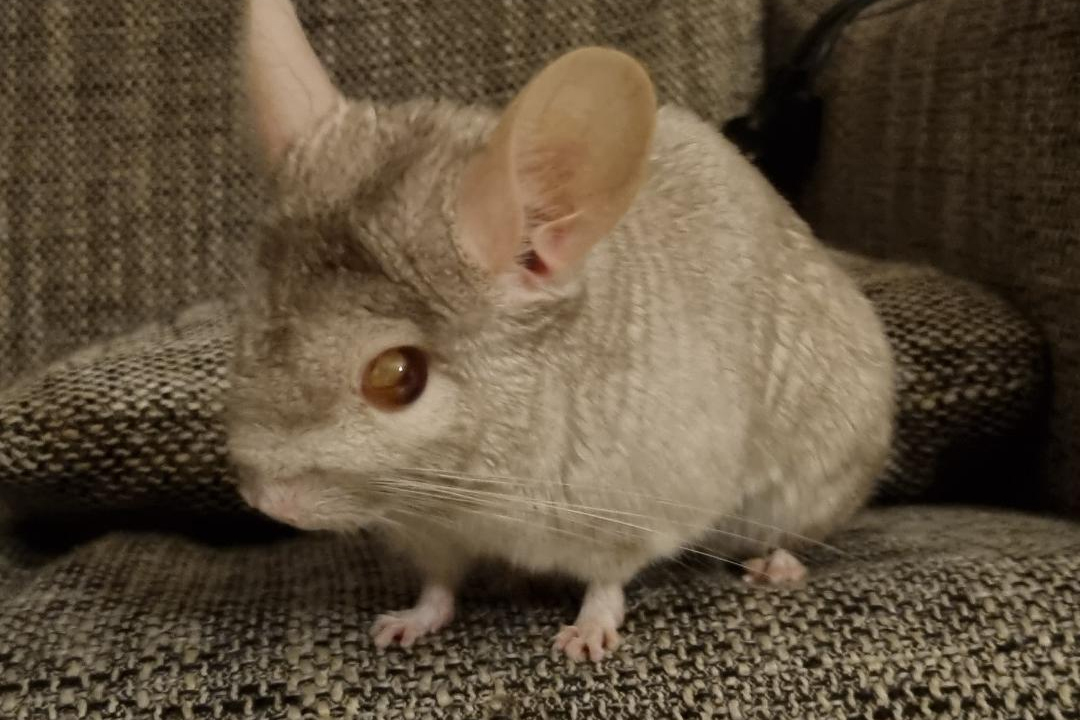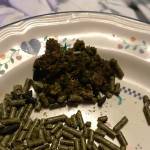Toxoplasmosis is a common parasitic disease that affects many animals, including chinchillas. It is caused by the Toxoplasma gondii parasite, which is usually transmitted through the ingestion of contaminated food or water, or through contact with infected animals. While the disease can be asymptomatic in some animals, it can cause severe health problems in others, particularly in young, old, or immunocompromised chinchillas. In this article, we will discuss the causes, symptoms, and treatment of toxoplasmosis in chinchillas, as well as ways to prevent and manage the disease.
Causes of Toxoplasmosis in Chinchillas
Toxoplasmosis in chinchillas is caused by the Toxoplasma gondii parasite, which is found in the feces of infected animals. The parasite can also be present in contaminated soil, water, or food. Chinchillas can become infected with the parasite by ingesting contaminated food or water, or by coming into contact with contaminated surfaces or animals.
Symptoms of Chinchilla Toxoplasmosis
The symptoms of toxoplasmosis in chinchillas can vary depending on the severity of the infection. In some cases, chinchillas may not show any symptoms at all, while in other cases, the disease can cause severe health problems. Some common symptoms of toxoplasmosis in chinchillas include:
- Loss of appetite
- Weight loss
- Lethargy
- Diarrhea
- Respiratory problems
- Jaundice
- Seizures
If you notice any of these symptoms in your chinchilla, it is important to take them to a veterinarian for diagnosis and treatment as soon as possible.
Treatment for Toxoplasmosis in Chinchillas
The treatment for toxoplasmosis in chinchillas will depend on the severity of the infection. In mild cases, the infection may resolve on its own without any treatment. However, in more severe cases, medication may be necessary to help fight the parasite and prevent further health problems.
One common medication used to treat toxoplasmosis in chinchillas is sulfadiazine. This medication is usually given in combination with pyrimethamine, another medication that helps to slow the growth of the parasite. Other medications that may be used to treat toxoplasmosis in chinchillas include clindamycin and trimethoprim-sulfamethoxazole.
In addition to medication, supportive care may also be necessary to help your chinchilla recover from the disease. This may include providing your chinchilla with a warm and quiet environment, offering them food and water, and administering fluids or electrolytes as needed.
Preventing Toxoplasmosis in Chinchillas
Preventing toxoplasmosis in chinchillas is key to keeping your pet healthy and happy. There are several steps you can take to help prevent your chinchilla from becoming infected with the parasite, including:
- Keeping their living area clean and free from feces
- Providing them with clean water and food
- Avoiding contact with infected animals or contaminated surfaces
- Washing your hands thoroughly before and after handling your chinchilla or their food and water
- Having your chinchilla tested for the parasite if you suspect they may be infected.
It is also important to note that while chinchillas can contract toxoplasmosis from infected cats, it is not a common source of transmission. It is more likely for chinchillas to become infected through contaminated food, water, or surfaces.
Managing Toxoplasmosis in Chinchillas
If your chinchilla has been diagnosed with toxoplasmosis, there are several steps you can take to help manage the disease and prevent it from spreading to other animals:
- Quarantine: If you have multiple chinchillas, it is important to quarantine the infected chinchilla to prevent the disease from spreading. Keep them in a separate enclosure and avoid contact with other chinchillas until they have fully recovered.
- Cleaning and Disinfection: Thoroughly clean and disinfect your chinchilla’s living area to remove any traces of the parasite. Use a solution of bleach and water to disinfect surfaces and wash your chinchilla’s toys and bedding in hot water.
- Follow-up Care: After treatment, it is important to monitor your chinchilla closely and follow up with your veterinarian to ensure that the infection has been fully treated. Your veterinarian may recommend additional testing to confirm that the parasite has been eliminated.
Toxoplasmosis is a serious disease that can have severe health consequences for chinchillas. However, with proper prevention and management, it is possible to keep your chinchilla healthy and happy. Be sure to keep your chinchilla’s living area clean and free from feces, provide them with clean food and water, and avoid contact with infected animals or contaminated surfaces. If you suspect that your chinchilla may be infected with toxoplasmosis, seek veterinary care immediately. With early diagnosis and treatment, your chinchilla can make a full recovery and live a long and healthy life.







